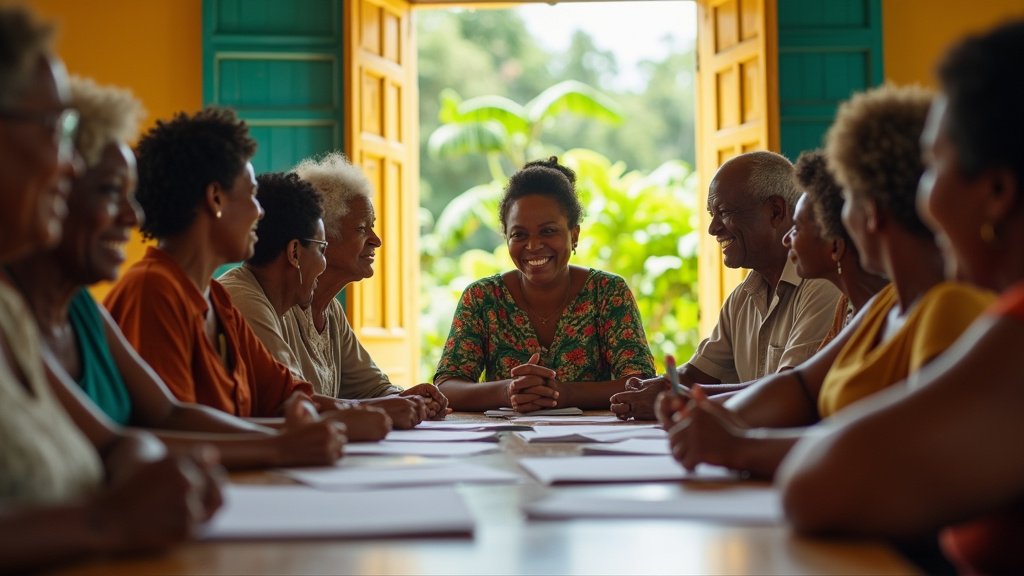In a strategic move to enhance its reach and effectiveness in delivering essential social services, the Ministry of Labour and Social Security in Jamaica is actively strengthening its partnerships with community-based organizations (CBOs), churches, and non-governmental organizations (NGOs). This initiative aims to ensure that vulnerable individuals, particularly the elderly, receive more accessible and timely support across the island.
Deepening Community Ties for Greater Reach
Chief Technical Director Audrey Deer-Williams highlighted the increasing demand for social support programs and the Ministry’s proactive approach to meet these needs. “We’re finding a lot of demand from churches and other NGOs,” Mrs. Deer-Williams stated. “When they have their fairs or other information sessions, they reach out to our staff in the parishes to partner with them to give information.”. This collaborative model allows ministry representatives to be present at community events, equipped with the necessary tools to facilitate on-site processing of applications, thereby streamlining access to crucial benefits for citizens. This news comes as part of the Ministry’s ongoing efforts to build a more inclusive and responsive social protection system for all Jamaicans.
Pillars of Social Support in Jamaica
The Ministry oversees several key programs that form the backbone of Jamaica’s social safety net. The National Insurance Scheme (NIS) currently provides pensions to approximately 150,000 individuals, serving as a vital source of retirement income for many seniors. Complementing this is the Programme of Advancement Through Health and Education (PATH), which supports around 66,000 older persons, alongside other vulnerable groups such as children, pregnant women, and individuals with disabilities.
A significant development in recent years is the Social Pension Programme, launched in 2021. This program guarantees an income for vulnerable Jamaicans aged 75 and older who do not receive other forms of pension or income support. To date, 16,000 individuals are registered, with eligible PATH beneficiaries now being transitioned to this program, effectively doubling their pension benefits and strengthening support for the most vulnerable seniors.
Ensuring Program Sustainability
The long-term viability of these social programs is a key focus for the government. The National Insurance Fund (NIF), which finances the NIS, undergoes regular actuarial reviews to ensure its sustainability. Reforms implemented in recent years, including increased contribution rates and insurable wage ceilings, have strengthened the NIF’s financial health, leading to increased benefit payouts. Actuarial analyses continue to inform policy decisions, ensuring that the NIS can meet its future obligations.
Broader Government Initiatives for Vulnerable Jamaicans
Beyond strengthening existing programs, the government is introducing new measures to bolster support for its citizens. Prime Minister Andrew Holness has announced the “Solidarity Program,” a $1 billion initiative designed to provide a one-off $20,000 grant to 50,000 unattached and vulnerable Jamaicans who may not be covered by existing social safety nets. This program targets youth, the elderly, persons with disabilities, informal workers, and microbusinesses affected by disasters, aiming to provide immediate relief and connect beneficiaries to essential services.
Furthermore, the government is advancing legislative protections for the elderly, including drafting the Elder Care and Protection Act. Plans are also underway to expand long-term care services for seniors, focusing on palliative care, health screenings, and community-based support systems, in line with World Health Organization recommendations. The Ministry’s “Social Protection for Increased Resilience and Opportunity” (SPIRO) initiative continues to serve as a central framework for expanding social protection coverage and strengthening service delivery.
The Indispensable Role of Community Organizations
Jamaica boasts a vibrant ecosystem of NGOs and CBOs that play a critical role in delivering social services and advocating for marginalized groups. Churches and other community groups are invaluable partners, acting as conduits to reach individuals who might otherwise be missed. The Ministry’s strategy to involve these entities in outreach and application processing underscores the recognition that effective social support is a shared responsibility, built on strong community foundations.
By fostering these deep community partnerships and implementing robust social programs, the Ministry of Labour and Social Security is reinforcing its commitment to building a more equitable and secure future for all Jamaicans, ensuring that no one is left behind.

